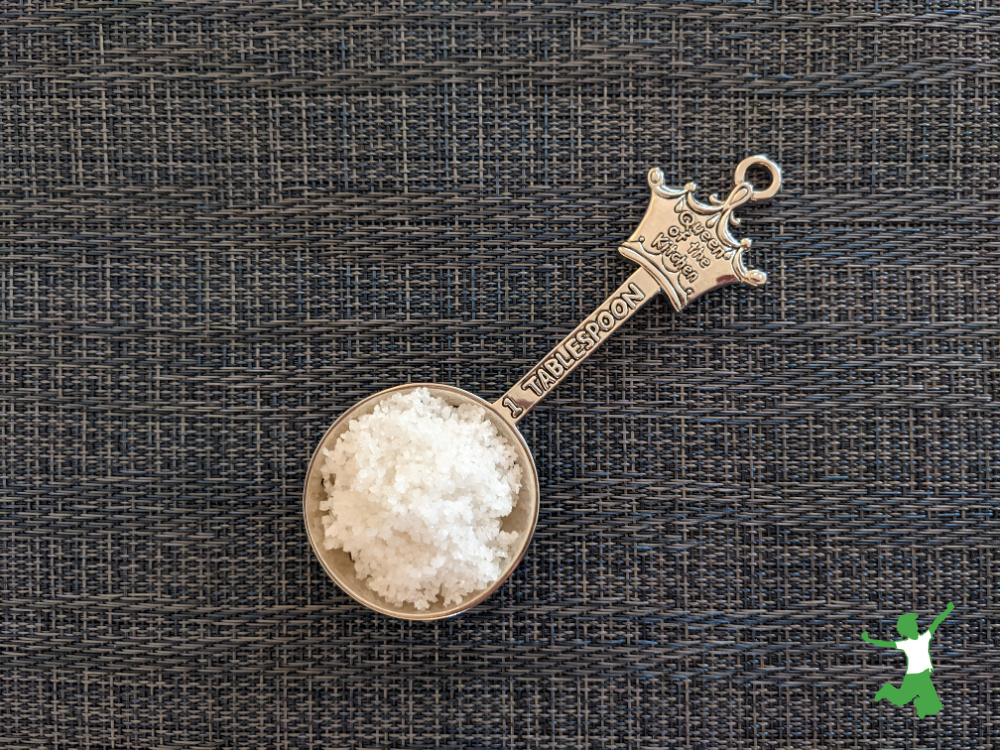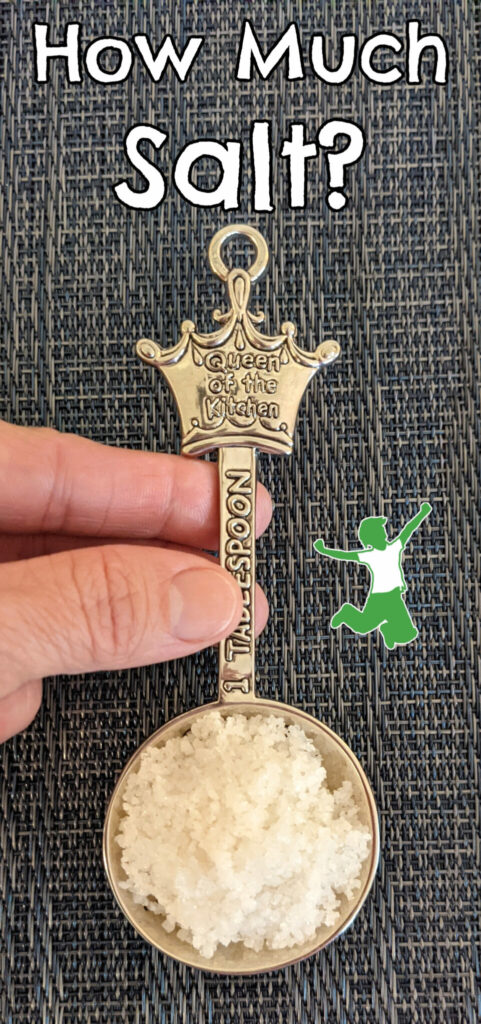The pseudoscience behind a low salt diet and why reducing sodium intake increases the risk of obesity, diabetes and a cardiovascular event.

“Mankind can live without gold … but not without Salt.” – Cassiodorus, Roman statesman, circa 500 AD
The FDA continues to recommend low salt diets, gradually moving toward the goal of 23o0 mg per day. This is despite strong evidence that a low sodium diet is not health-promoting and actually risks higher rates of disease and death.
Perhaps the FDA is attempting to usher in a modern manifestation of the ancient salt routes.
In the Dark and Medieval Ages, only the rich had enough salt. The peasants were unable to procure enough, and their health suffered greatly as a result.
Of course, the push to control the sodium content of food is cloaked in the argument that low salt diets are beneficial to health.
This is simply not so!
Low salt diets are flat-out harmful and there is plenty of research to back this up.
In fact, it is smart to use homemade sole water as an ionic supplement to ensure you are getting enough!
Research on Low Salt Diet Dangers
A compelling and large study that dismantles the sacred cow that salt is bad for you appeared in the Journal of the American Medical Association. (1)
3,681 healthy European men and women aged 60 or younger were followed for about 8 years.
Those that consumed higher than average amounts of sodium did not experience an increased risk for hypertension, stroke, or heart attack.
Dr. Jan Staessen MD, senior author of the study at the University of Leuven in Belgium stated that the study’s findings:
… do not support the current recommendations of a generalized and indiscriminate reduction of sodium intake at the population level.
Low Sodium Increases Disease and Death
It appears that it is much better to have a higher than average sodium intake than a lower one.
As published by the peer-reviewed Journal of the American Medical Association, even small decreases in sodium content in the diet increase the risk for a cardiovascular event and death.
The sodium levels adhered to in the JAMA study were based on USDA dietary guidelines.
Hence, people who follow low salt recommendations are at increased risk for a significant and possibly deadly health event!
The authors of the study wrote:
Taken together, our current findings refute the estimates of computer models of lives saved and healthcare costs reduced with lower salt intake. They also do not support the current recommendations of a generalized and indiscriminate reduction in salt intake at the population level. (2)
Dangers for Diabetics
Another study from Harvard University showed that participants developed insulin resistance in only 7 days when on a salt-restricted diet. (3)
Insulin resistance is an alarming condition that indicates a strong likelihood that Type 2 Diabetes will develop.
Similarly, Australian studies have shown that those individuals with Type 1 or Type 2 Diabetes die in larger numbers when following a salt-restricted diet.
From a common-sense point of view, a review of these studies indicates that low salt intake is a particularly risky path for those with blood sugar control issues.
Given that 80% or so of adults over the age of 25 are already overweight or obese in the United States, FDA restrictions on salt content in food could put the majority of the population at considerable risk for early death.
Salt Replacement Risks
The very clear danger of any FDA-mandated reduction in the salt content of foods is that manufacturers will increase the amount of MSG to compensate for the loss of flavor.
This has been Big Food’s typical response to government calls for reduced sodium since the 1970s.
It appears, however, that food manufacturers have another favorite food additive that they use to stealthily replace sodium.
Senomyx Dirty Little Secret
The salt substitute of choice for Big Food is called Senomyx. It is so potent and requires such tiny amounts that it doesn’t even need FDA approval.
According to the Weston A. Price Foundation:
The Senomyx salt substitute is clearly a chemical product that works in the body as a neurological agent, causing an individual to perceive a salty taste. It would seem to be nothing more or less than a neurotrophic drug.
Because the maker of the Senomyx product calls it a food, their salt substitute does not require the extensive testing that would be required by the FDA if it were called a pharmaceutical.
To our knowledge, there has been no testing of the Senomyx salt substitute for safety, and it is so potent that the amount needed in food is below the amount requiring FDA approval. (4)
Most consumers are unaware that Senomyx widely uses aborted fetal cells in their flavor manufacturing. (5)
Besides this undisclosed ethical issue, the use of Senomyx, which tastes salty but does not satisfy the body’s biological need for salt, threatens consumers with even more weight issues!
This is because appetite does not sufficiently abate until enough salt is consumed.
Hungry all the time? Perhaps you are not getting enough salt!
In short, people continue to eat and eat until their bodies get sufficient salt regardless of what level the FDA might ordain. (6)
Which Salt is Best?
Obviously, people would do well to avoid refined or iodized salt for the same reasons as any other processed food.
Unrefined sea salt containing dozens of important trace minerals is the best type to source as part of a healthy diet.
Due to microplastic pollution found in sea salt in recent years, it is a good idea to make sure yours is tested for purity.
My preferred sea salt brand is this brand from the Sea of Cortez which is tested to be free of contaminants and microplastics. Use coupon HealthyHome10 for 10% off if you’d like to try it!
Sea of Cortez sea salt (“Baja Gold”) also contains the highest amount of trace minerals of any sea salt in the world (no other sea salt is even close).
If you’ve been afraid of too much salt in the past, it’s time to stop worrying. Your body NEEDS salt!
Objective studies show that low salt diets do more harm than good. The view that “salt is bad” is substantiated only by junk science.

(1-2) Fatal and nonfatal outcomes, incidence of hypertension, and blood pressure changes in relation to urinary sodium excretion
(3) Low-salt diet increases insulin resistance in healthy subjects
(4) The Salt of The Earth
(5) Hidden Food Ingredients
(6) Caustic Commentary Summer 2022








What about people who have high blood pressure? Is unrefined salt still good for them? And what do you think about adding extra iodine to sea salt?
Iodine can’t bond with salt unless it’s heated to ridiculous levels under pressure, burning away all the good stuff, and leaving only refined salt and iodine. I know of no way to make iodine available in unrefined salt.
Refined salt and ‘real’ salt are two entirely different products. All have their uses yet the Government should definitely make it known that one has 82 minerals (present in its natural state) removed.
It’s important to differentiate between salt (sodium chloride) and sodium, which can come from many sources, notably MSG. By trying to restrict salt but not *sodium*, the FDA is really tipping their hand that their aim is not to support human health. The chloride half of salt is also a crucial nutrient; MSG and other flavoring agents are completely lacking it.
Of course, sea salt is better than plain salt — iodine and many trace elements are present, and as with pink Himalayan, there are likely to be beneficial microorganisms as well.
Celtic and pink Himalayan have differing goodies in them; both are good for you. Why not just keep both around, and use whichever you feel like at any given moment?
Himalayan is higher in little micro-organisms that are found in clay, and Celtic will be higher in iodine and some little seaborne micro-organisms. i see no need to choose between them 🙂
So what salt is best to use? I’ve been buying Himalayan Pink salt but should I switch?
Personally, I keep all of them around. I think variety is as good a thing in salt as in our diet, since different salts have different profiles. So pink Himalayan, Celtic and Real Salt are all in my kitchen.